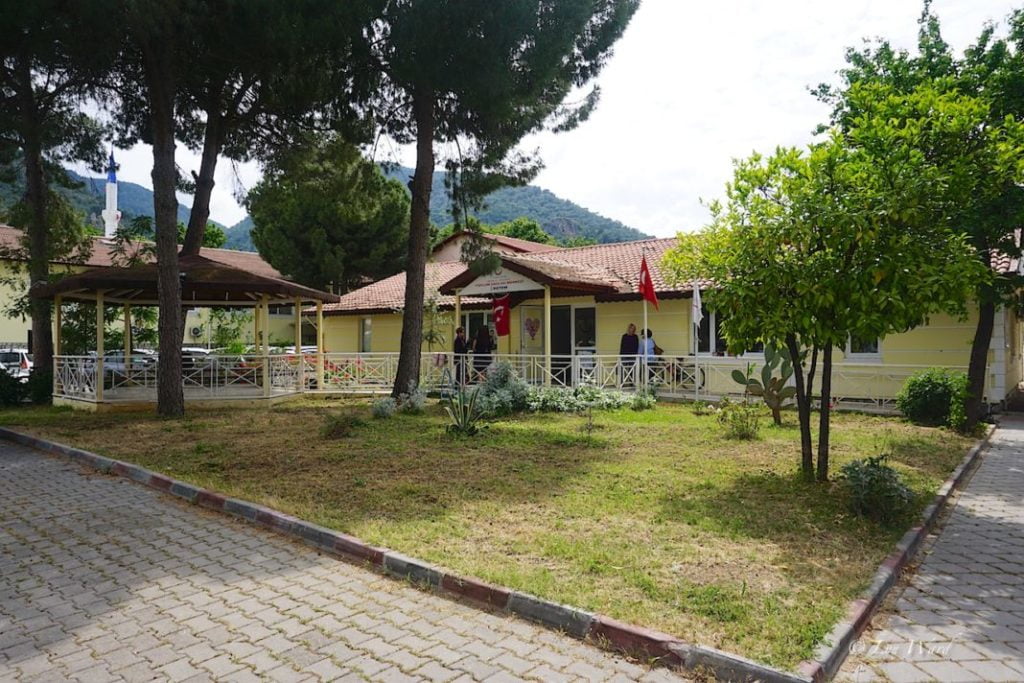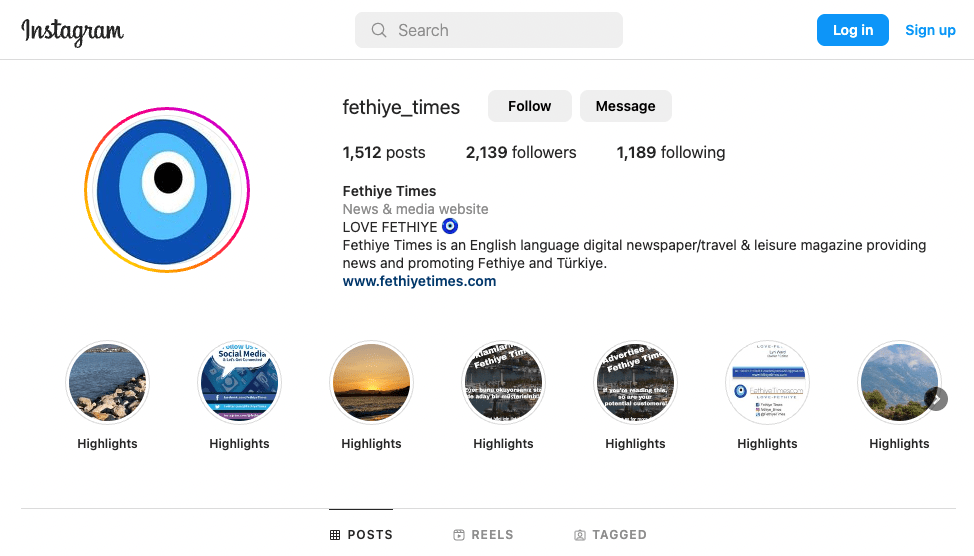Cancer screening saves thousands of lives each year. It can detect cancers at an early stage and in some cases, even prevent cancers from developing in the first place…
Cancer screening is an effective way to reduce the risk of certain cancers. Getting screening tests regularly may find breast, cervical, and colorectal (colon) cancers early, when treatment is likely to work best.
Breast Cancer
Mammograms are the best way to find breast cancer early, when it is easier to treat.
Cervical Cancer
The Pap test can find abnormal cells in the cervix which may turn into cancer. The HPV test looks for the virus (human papillomavirus) that can cause these cell changes. Pap tests also can find cervical cancer early, when the chance of being cured is very high.
Colorectal (Colon) Cancer
Colorectal cancer almost always develops from precancerous polyps (abnormal growths) in the colon or rectum. Screening tests can find precancerous polyps, so they can be removed before they turn into cancer. Screening tests also can find colorectal cancer early, when treatment works best.
Free screening with KETEM
What is KETEM?
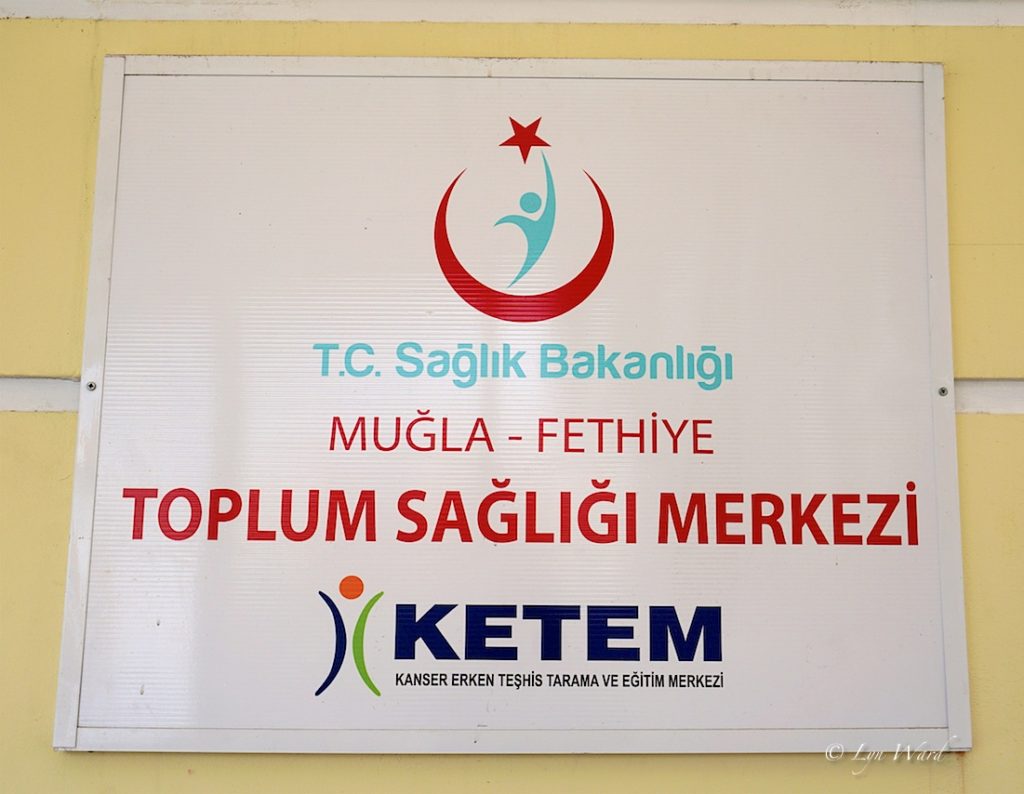
KETEM stands for Kanser Erken Teşhis, Tarama ve Eğitim Merkezi which translates to Cancer Early Diagnosis, Screening and Training Center. It is part of the T.C. Saglık Bakanlığı (Ministry of Health) which is housed in a building opposite the main mosque in Fethiye, a building you may have walked past many times without realizing what it is.
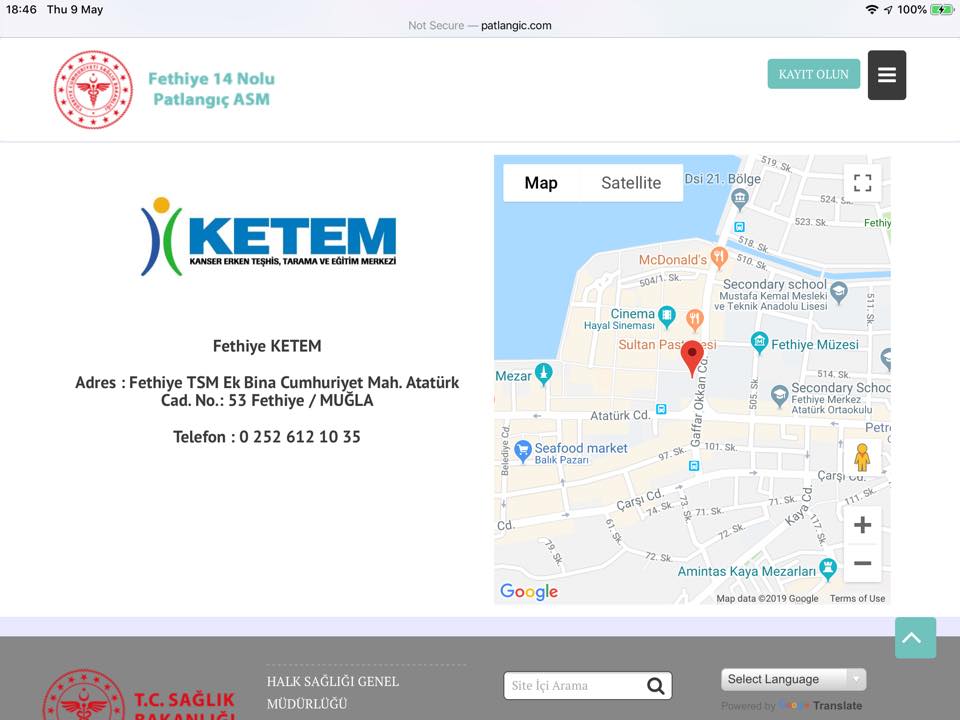
What do KETEM do?
KETEM provide free Breast, Cervical and Colorectal cancer screening for Turkish Citizens and Residency Permit (Ikamet) holders.
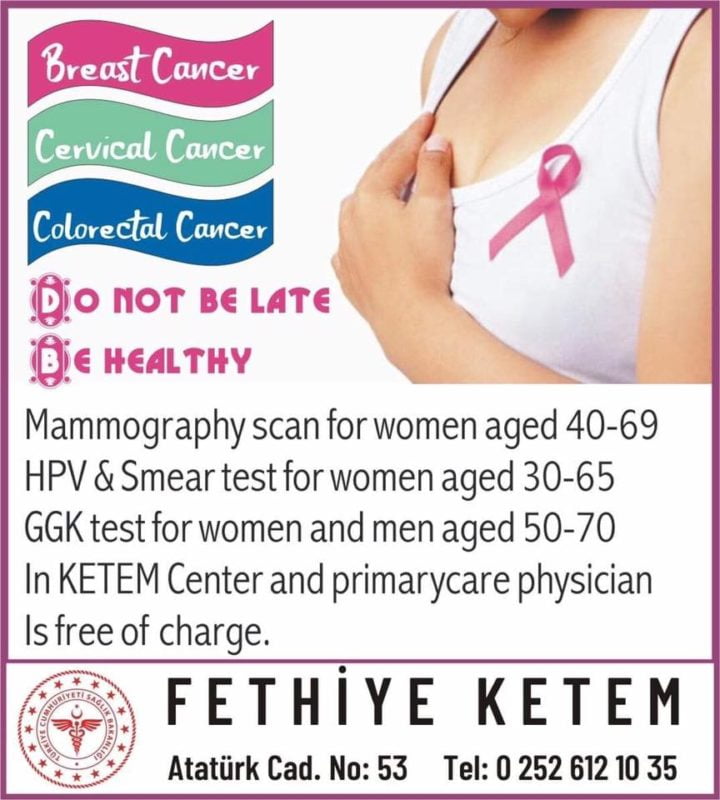
They are very keen to make sure that foreign residents are aware of the services they are entitled to and, last Friday (10th May), a meeting took place to raise awareness of these services.
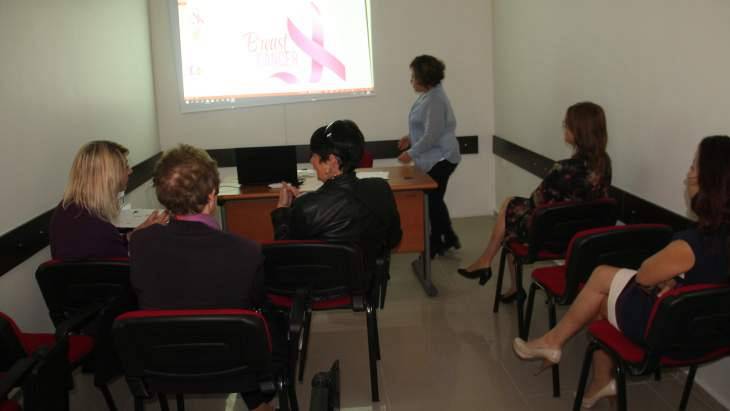
KETEM provide:
Free mammograms for women aged 40-69. Please note that if you have had breast cancer in the past, you need to go to one of the hospitals for screening.
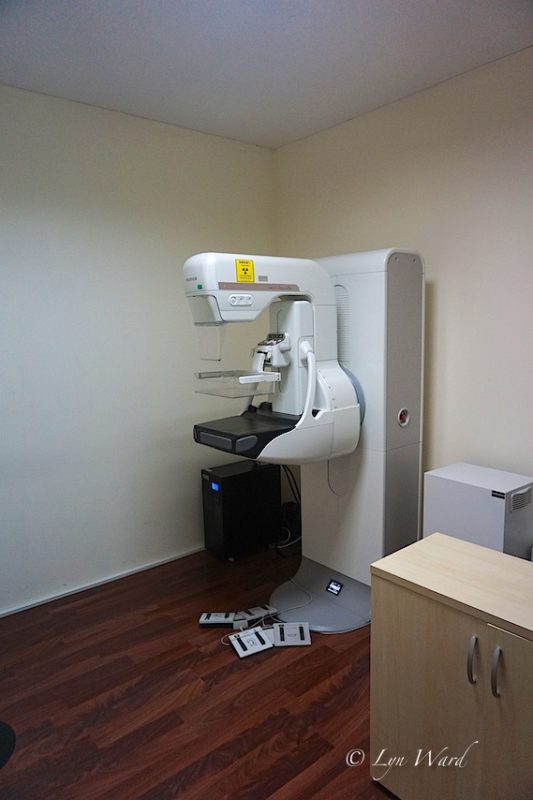
HPV & smear tests for women aged 30-65
GGK test for women and men aged 50-70
Fethiye KETEM
Fethiye KETEM covers qualifying people from Fethiye, Seydikemer, Dalaman and Ortaca.
Groups of people from outlying villages can arrange free transport to KETEM via the office.
You don’t need an appointment, you can just walk in off the street and be screened there and then. All you need is your Turkish I.D. card (Kimlik) or Residency Permit (Ikamet).
The clinic is situated behind the main T.C. Saglık Bakanlığı (Ministry of Health) building. You can be sure of receiving a warm and friendly welcome by Dr. Banu Mumcu and her team.
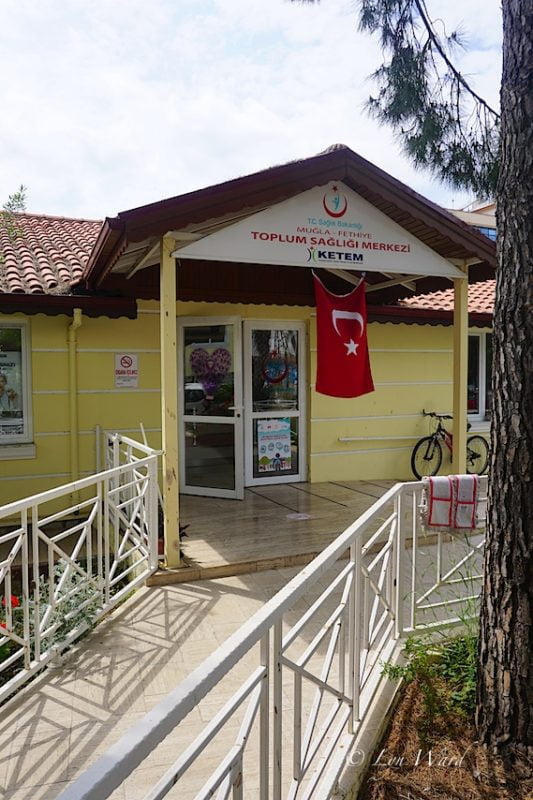
KETEM don’t provide a formal translation service but there are people there who can speak some English and are happy to help. If the language barrier makes you nervous, you can take a Turkish/English speaker with you.
Why choose KETEM?
Wherever you choose to go for your screening, the results have to be sent away for analysis. With KETEM you get a little bit more…
Mammogram images are sent to Ankara where they are checked for irregularities by doctors with expertise in breast cancer. The results take approximately three weeks.
KETEM carry out HPV test when screening for cervical cancer. The test looks for the virus (human papillomavirus) that can cause these cell changes. The results of the HPV test identify women at risk of contracting cervical cancer and informs how often the screening should take place by individual. Not all clinics perform the HPV test. The results take approximately two to three weeks.
Colorectal cancer screening is by a Fecal Immunochemical Test. It tests for hidden blood in the stool, which can be an early sign of cancer. You will be given the test to use at home with instructions. A positive result does not necessarily mean you have cancer however you will be referred for a colonoscopy for further investigation.
What if I have a positive result
If any of the screening tests come back positive, you will be referred to a hospital for further tests.
Breast and colorectal cancer are referred to the Fethiye Devlet (State) Hospital and cervical cancer to the Muğla University hospital. KETEM follow up on all referrals to monitor progress.
Don’t Die of Embarrassment.
Delaying getting cancer screening puts you at increased risk of dying!
Don’t be late, be healthy!
Sources: cdc.gov/Cancer Research UK

